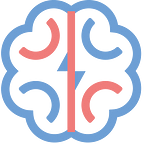FAQs About Family Caregiver Support Programs
Finding and choosing family caregiver support programs can be a daunting task. Here are some answers to frequently asked questions about these programs in order to help you decide which ones are the best fit for you, your family and your loved one.
Q: What types of family caregiver support programs exist?
A:
- In-Person Support Groups — Many of these are virtual for the time-being because of COVID-19, but will resume when they are able to.
- Helplines — The Ontario Caregiver Helpline can help connect caregivers to support resources such as respite, and/or support groups or programs in their community. The number to call: 1–833–416–2273 (CARE).
- Online Caregiver Forums — These are sites where caregivers can post questions and receive answers from other caregivers. There are also some sites and Facebook groups that are monitored by professionals who answer questions, i.e. The Caregiving Trap: Solutions for Life’s Unexpected Changes by Pamela D Wilson.
- Online Membership Caregiver Support Programs — These are similar to forums and can be monitored or unmonitored, either by a caregiver who has become the leader of the group or by a professional.
- Online Caregiver Courses — There are some good caregiver courses offered for different purposes. Keep reading to learn which ones are best suited to your needs!
Q: Which family caregiver support programs are the best if a family member is experiencing a mental health issue?
A:
- Family Education — CMHA Toronto’s Family Outreach & Response Program (FOR) provides support for recovery, counselling and group programming.
- NAMI Education Program — CMHA Toronto offers a free course that is taught by family members, which is designed for family members of people with schizophrenia, major depression, bipolar disorder, panic disorder, obsessive compulsive disorder, borderline personality disorder, or who exhibit any symptoms of these diagnoses.
- Caregiver Education Sessions — Institute for Advancements in Mental Health (IAM) offers a program that covers challenges families and caregivers face, handling stress and anxiety relating to the pandemic, and ways to cope with increased burden of care.
- CBT-p for Caregivers — IAM also offers a caregiver workshop that provides practical tools to help to reduce anxiety and depression in caregivers, increase resiliency, and increase the ability to encourage recovery in their loved one.
Q: Are caregiver support programs affordable?
A: The idea behind many of these programs is to help caregivers navigate the caregiving process, especially those who do not have access to care homes or assisted living facilities. There are many free support programs, courses, and online resources, i.e.:
- Community & Home Assistance to Seniors (CHATS) offers caregiver support groups free of charge in the Toronto area: Richmond Hill, Aurora, Thornhill, Vaughan, Bradford, Sutton, Newmarket and Markham. CHATS support groups allow caregivers to share their experiences, strategies, strengths, and to find new coping strategies when challenges arise.
- The Ontario Caregiver Organization offers online support groups to caregivers during COVID-19, as well as for young caregivers.
- The Reitman Centre at Mount Sinai Hospital offers CARERS Group and TEACH Group Programs, which are skills-based training programs for family members caring for a loved one with dementia.
Q: How can I find caregiving resources in my area?
A: Depending on the care your loved one may need, it can be difficult to know where to look for support. Check out your local area agency on aging, local and state offices on aging or social services, tribal organization, or senior centre. Here are a few options to help you locate caregiving resources:
- National Association of Area Agencies on Aging — Their mission is to support people as they age, and help older adults and people with disabilities.
- Eldercare Locator — A public service of the U.S. Administration on Aging, which connects you to services for older adults and their families.
- Family Care Navigator (Services by State) — This tool helps family caregivers locate public, non-profit, and private programs and services closest to their loved one. Some resources include government health and disability programs, legal resources and disease-specific organizations.
The Memoryz app is another great resource for families and caregivers of those with dementia. The app includes task reminders, mood tracking, and chat-based support. Find support through our caregiving community, which promotes self-care, helps to avoid caregiver burnout and provides activity suggestions. You can download the Memoryz app on Google Play and the App Store today.
Download Memoryz on Google Play: https://play.google.com/store/apps/details?id=com.memoryz.app
Download Memoryz on the App Store: https://apps.apple.com/us/app/memoryz/id1506838838
Visit our website to learn more about the app: https://www.memoryz.co
References:
Help for Caregivers and Family Members. CMHA Toronto. (2018, July 16). https://toronto.cmha.ca/help-caregivers-family-members/.
U.S. Department of Health and Human Services. (2019, September 23). Frequently Asked Questions About Caregiving. National Institute on Aging. https://www.nia.nih.gov/health/frequently-asked-questions-about-caregiving.
Wilson, P. D. (2021, January 14). 10 Frequently Asked Questions About Caregiver Support. Pamela D Wilson | The Caring Generation. https://pameladwilson.com/caregiver-support-frequently-asked-questions-about-caregiver-support/.
